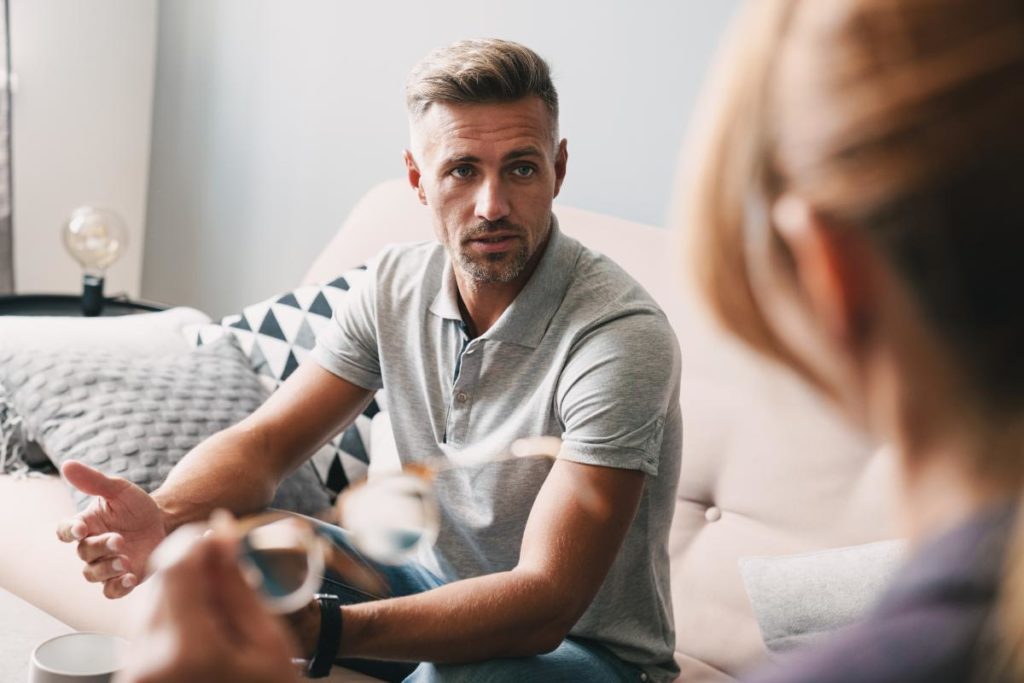If you have decided to look for an LGBTQ-inclusive intensive outpatient program for addiction, you have already completed the first step of recovery. Choosing to receive treatment can be a scary decision, but it is essential. If you are looking for a queer-inclusive intensive outpatient program (IOP) for you or a loved one, there are a couple of things to consider first. If you still have questions after reading this article, reach out to us at La Fuente Hollywood Recovery Center via 888.903.9898, and we can answer them.
What Is an IOP?
Intensive outpatient programs work to address and treat addictions and other dependencies that may not require constant surveillance. Our programs help our patients succeed while also having the freedom to live their day-to-day life outside of a residential treatment program. IOPs are different from intensive inpatient programs because they allow independence while living their everyday lives.
Residential treatment requires that patients stay on-site, whereas patients in intensive outpatient programs live at home. Sometimes, treatment centers can use queer-inclusive IOPs in conjunction with inpatient programs to encourage patients to adapt smoothly back into their communities, provide relapse management, and provide healthy coping skills.
LGBTQ-Inclusive IOPs
Queer-inclusive IOPs are an excellent place for individuals to feel safe and supported during and after their recovery. Here, you can connect with other members of the LGBTQ community to compare and share healthy coping skills and different ways that they choose to overcome their addiction. This safe environment allows patients to focus on their addiction treatment and recovery without the pressure of external influences.
5 Traits to Look for in an LGBTQ-Inclusive IOP
You should look for several things in a queer-inclusive intensive outpatient program. Here are five examples:
1. Intersectionality
A program should be intersectional so that all members of the LGBTQ community feel respected and supported regardless of their gender or sexual identity. This inclusivity means that IOPs should include people of all genders, sexual orientations, races, ages, and abilities in their mission.
2. Queer Staff
When a program has queer staff members, that means they have people who can truly understand the challenges of the LGBTQ community on a personal level. Having most likely lived through similar issues to you, these staff members will be able to help you through your addiction on a personal level where you feel understood.
3. Awareness of the Impact of Gendered Spaces
Being aware of the impact of gendered spaces can be as simple as implementing a gender-neutral bathroom. By creating spaces where everybody is accepted, individuals can focus on their recovery rather than their lack of representation.
4. Competent Counselors
If you are receiving IOP treatment, you want to ensure that your counselor is competent in your substance use disorder and any other co-occurring disorders you may have. This competency means that they should also respect your pronouns, name, and privacy. If a counselor is not aware of the dangers of outing somebody, they are not a competent counselor.
5. Opportunities for Community
In an LGBTQ-inclusive intensive outpatient program, there should be opportunities for you to connect with your peers, either through group therapy or any other type of community building. Other patients will often have advice for individuals who need healthy coping skills or somebody who understands their position.
LGBTQ Intensive Outpatient Program at La Fuente Hollywood Recovery
Finding addiction treatment programs that are right for you can be difficult. At La Fuente Hollywood, we make sure that every one of our community members feels supported and respected. If you have any further questions about LGBTQ-inclusive IOPs, reach out to one of our healthcare professionals today at 888.903.9898 to learn about your treatment options.




